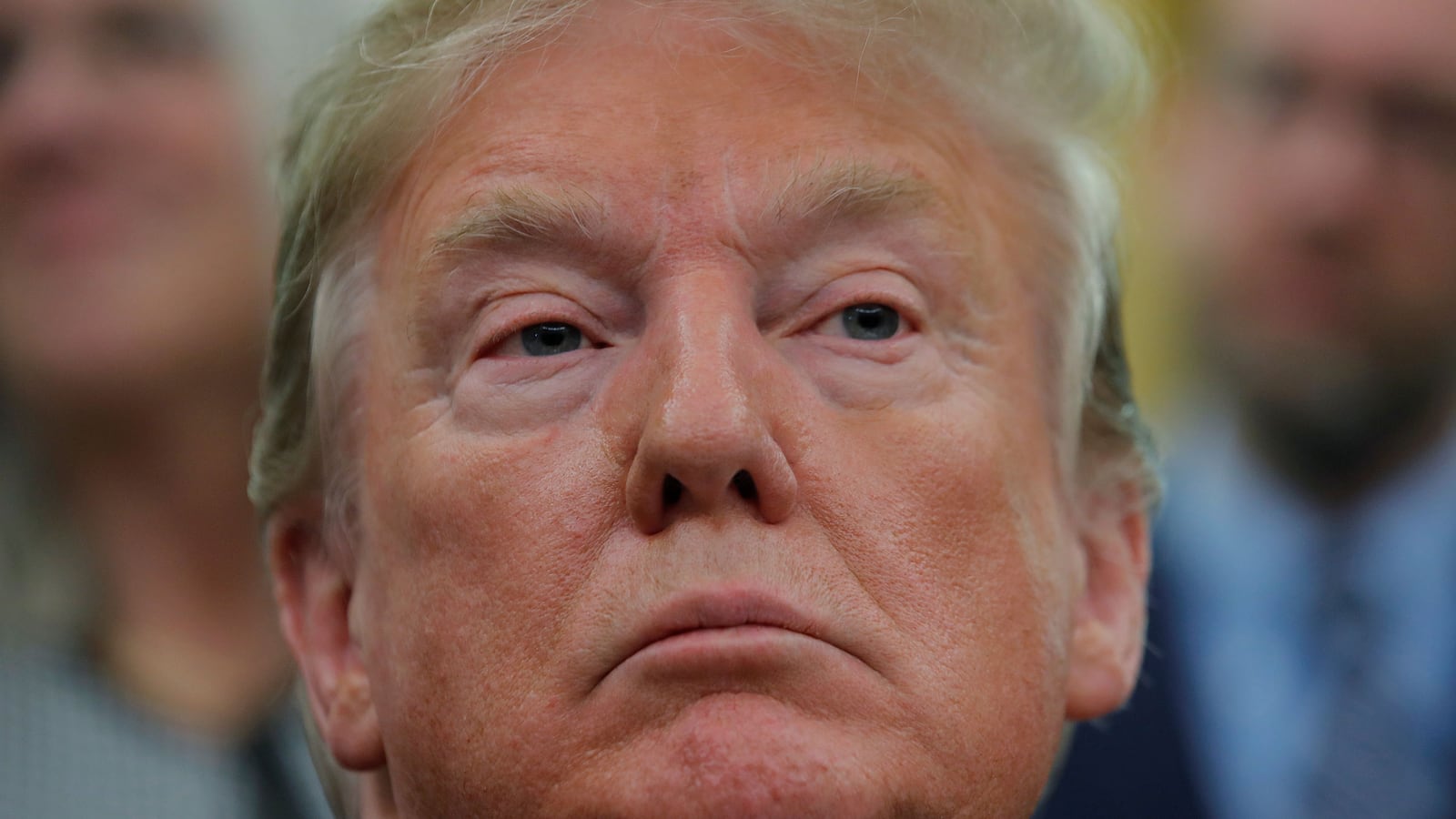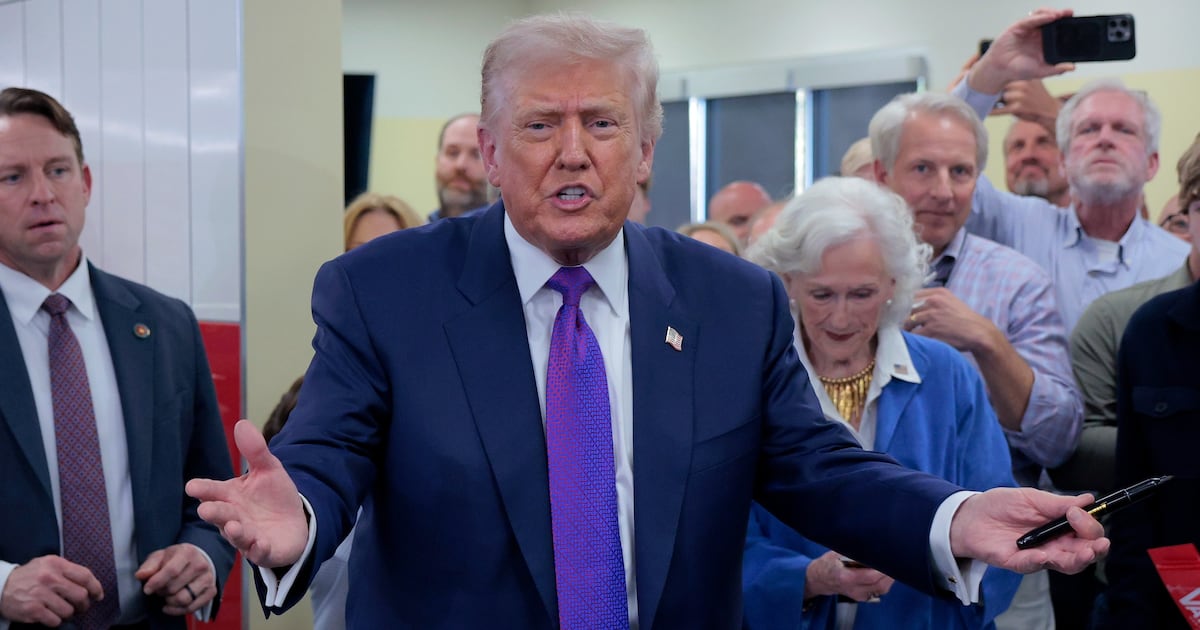Mobsters say that the safest place to hide is, often, just out in the open. When it comes to obstruction of justice, President Donald Trump may be adopting the same strategy.
The New York Times on Tuesday chronicled President Donald Trump’s efforts to discredit law enforcement investigations that have affected his presidency. By pulling together two years of reporting, the Times tells a remarkable story of Trump’s efforts to undermine the investigations by Special Counsel Robert Mueller and others. Of course, we may not know all that has happened behind closed doors, but the Times piece highlights how much of Trump’s conduct has been done in plain sight.
Obstruction of justice is a crime that is usually committed covertly and in the shadows to conceal it from detection. Criminals destroy or alter evidence when no one is looking. They coordinate lies with associates and remind them to tell no one. They use intermediaries to quietly communicate veiled threats to kill witnesses or harm family members who might testify against them. “You have a lovely daughter,” a mobster might say. “it would be a shame if something should happen to her.”
Trump, by contrast, seems to be attempting to obstruct the special counsel’s investigation in broad daylight. Why? It may be a deliberate strategy to maintain deniability. By using Twitter and public remarks to intimidate investigators and delegitimize law enforcement, Trump may be attempting to negate the ability of prosecutors to prove an essential element of an obstruction charge: corrupt intent. If he were intending to obstruct justice, the strategy goes, would he have done so publicly? Of course not! Therefore, he lacks the requisite intent to commit the crime.
Robert Mueller’s investigation into coordination between Russia and the Trump campaign regarding interference in the 2016 presidential election poses an existential threat to Trump’s presidency. One would expect that a president under investigation would say that while the investigation is baseless, he welcomes it nonetheless because it will confirm that he has done nothing wrong. Instead, Trump has gone on the offensive. He has attacked Mueller as “conflicted,” Mueller’s team as “13 angry Democrats,” former FBI Director James Comey as a leaker and liar, and the list goes on. In his tweets and in his public remarks, Trump asks for protection from his attorney general, and uses terms like “witch hunt,” “hoax,” and “deep state” to attack the probe and the investigators.
These remarks may be more than angry tirades. The Times piece tells a story of a deliberate strategy, coordinated with some House Republicans, to attack federal law enforcement to undermine the investigation. According to the story, Rep. Devin Nunes (R-CA), until recently the chairman of the House Intelligence Committee, has helped promote a false theory that President Obama ordered an illegal wiretap of Trump Tower. Nunes also authored a memo that attempted to discredit an application to the Foreign Intelligence Surveillance Court for surveillance on Trump campaign adviser Carter Page.
In soliciting the help of congressional Republicans, Trump isn’t just potentially obstructing investigations into his conduct. He’s also fortifying his political standing. Department of Justice policy holds that a sitting president cannot be indicted; meaning that the most serious consequence Trump can face is impeachment. By attacking the investigators, Trump could very well be attempting to persuade Republicans in Congress not to impeach and convict him on grounds that the investigation was faulty or biased. And, again, it’s all happening out in the open.
The in-plain-sight strategy goes back to the 2016 campaign. Mueller’s investigation has alleged that Russia had stolen email messages from the Democratic National Committee and from Hillary Clinton’s campaign chairman, John Podesta, and shared them with Wikileaks for publication. During the summer of 2016, Trump publicly stated, “Russia, if you’re listening, I hope you’re able to find the 30,000 emails that are missing.” At the time, the statement was dismissed as a bad joke. Upon further scrutiny, though, this statement may be seen in a new light. Mueller has already charged Russian intelligence officials with conspiracy to hack, steal, and stage the release of email messages to harm Hillary Clinton’s campaign. If Trump was coordinating with Russia in the effort to stage the release of the emails, did he make those remarks in public in an effort to avoid allegations of a coverup?
One tell that prosecutors often look for in investigating crimes that require specific intent, as the obstruction statute does, is evidence that tends to show “consciousness of guilt.” The theory is that the person would resort to certain unusual behavior only because he knew that what he was doing was wrong. This unusual behavior might come in the form of telling a lie to conceal certain conduct. It might be going to great inconvenience to cover one’s tracks. Or it could be doing things secretly to avoid detection. This type of evidence can be a gift to prosecutors because it helps to establish the person’s guilty intent. When something is done out in the open, on the other hand, it is harder to show that the person knew that what he was doing was illegal. It is worth contemplating that this may be Trump’s actual strategy.
As the Times story says, people tend to dismiss Trump’s criticism of investigators as “Donald Trump being Donald Trump.” If Donald Trump turns out to be a co-conspirator with Russia, then this statement may be more ominous than it appears.






